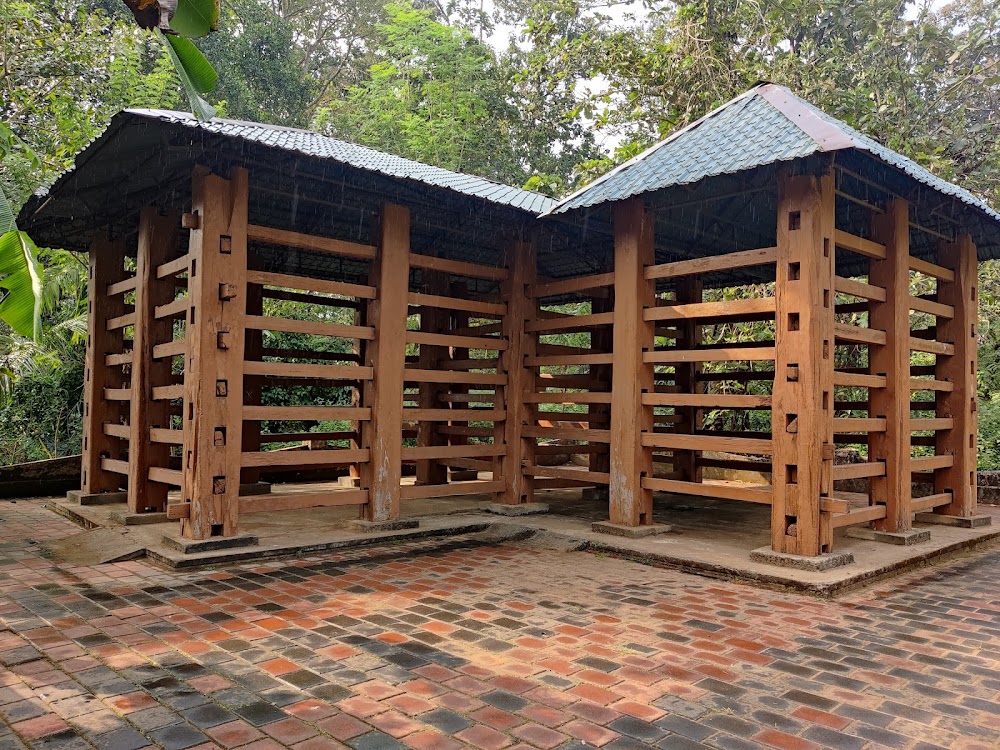Village de Koutiala (Village de Koutiala)
Overview
Located in the fertile region of Sikasso in Mali, **Village de Koutiala** is a captivating destination that offers a unique blend of history, culture, and natural beauty. Often referred to as the "Cotton Capital of Mali," this vibrant village is situated in southern Mali and boasts a rich agricultural heritage, playing a significant role in the country's cotton production. Visitors to Koutiala can immerse themselves in the authentic Malian rural lifestyle, where traditions have been preserved through generations.
**A Rich Historical Tapestry**
Koutiala's history is as rich as its fertile soil. The area has been inhabited by the Bambara people, who are known for their strong cultural heritage and intricate social structures. Throughout the centuries, Koutiala has been influenced by various empires, including the Mali Empire and the Wassoulou Empire. These historical influences are reflected in the village’s architecture, customs, and even its local dialect, creating a tapestry of cultural richness that enchants visitors.
**The Heart of Cotton Production**
One of the most compelling aspects of Koutiala is its thriving cotton industry, which is the lifeblood of the local economy. As one of the largest producers of cotton in Mali, Koutiala offers educational tours of its expansive cotton fields. During these tours, visitors will have the opportunity to learn about both traditional and modern farming methods while engaging with local farmers. These interactions provide insight into the challenges and rewards of cotton cultivation in this vibrant region.
**A Bustling Market Scene**
Koutiala is not solely defined by its cotton industry; it also boasts a vibrant market scene that is a must-visit for any traveler. The weekly markets are alive with activity, offering everything from fresh produce to artisanal crafts. Here, visitors can purchase handwoven textiles, traditional Bambara masks, and other unique souvenirs. The market is also an excellent place to sample local cuisine, such as "tô," a starchy dish made from millet or sorghum, typically served with rich peanut or leaf sauces.
**Cultural Immersion through Music and Dance**
For those interested in cultural immersion, Koutiala offers opportunities to experience traditional Bambara music and dance. The Bambara people are celebrated for their distinct musical instruments, such as the “djembe” drum and the “kora,” a lute-like instrument. Visitors might be fortunate enough to witness or participate in community celebrations or festivals, where these musical traditions come to life. Such events are filled with color, rhythm, and a sense of communal joy that is truly infectious.
**Natural Beauty and Exploration**
Nature enthusiasts will find much to admire in Koutiala's surrounding landscapes, which feature a mix of verdant fields and rolling hills. These picturesque views provide ample opportunities for hiking and exploration, while bird watchers can look out for various species inhabiting the region, adding an extra layer of enjoyment to nature walks.
**Comfortable Accommodations with Local Hospitality**
Accommodation options in Koutiala range from simple guesthouses to modest hotels. While amenities may not be as luxurious as those found in urban centers, the warmth and hospitality of the local people more than compensate for it. Staying in Koutiala allows tourists to experience life as a local, offering deeper insights into the everyday lives of the villagers.
**Community and Agricultural Cooperatives**
An interesting facet of Koutiala is its focus on community and agricultural cooperatives. These cooperatives have played a vital role in improving the livelihoods of local farmers, providing access to resources and training in sustainable farming practices. Visitors can learn about these initiatives and may even have the opportunity to contribute through volunteer programs or fair trade purchases.
**Ideal Visiting Conditions**
Koutiala's climate is characterized by a warm tropical atmosphere, with distinct wet and dry seasons. The best time to visit is during the dry season, from November to February, when temperatures are more moderate and the skies are clear, making for an enjoyable travel experience.
Overall, **Village de Koutiala** invites tourists to discover a side of Mali that is deeply rooted in tradition and community. Whether you are captivated by its agricultural significance, cultural richness, or the simple allure of rural life, Koutiala offers a welcoming and enriching experience. Each visit promises a deeper appreciation of Mali's diverse heritage and the enduring spirit of its people.



